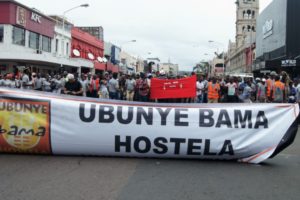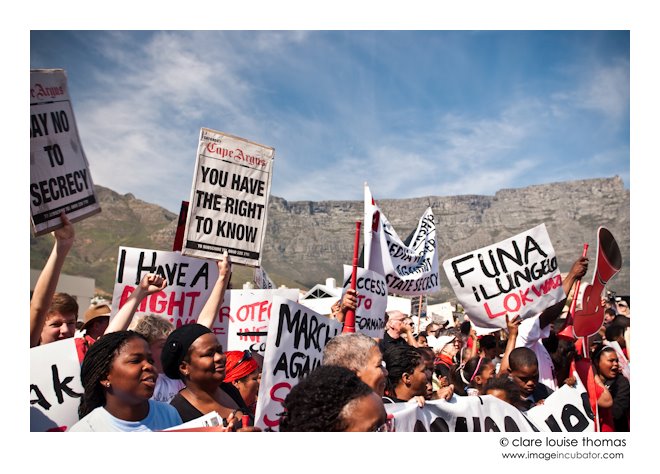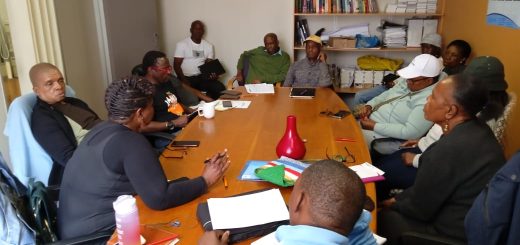Urgent appeal for food for eThekwini hostel communities during COVID-19 crisis!
 By Vusani Zweni
By Vusani Zweni
Ubunye bamaHostela (UbH) is a registered non-profit, non-political, grassroots, community-based and driven organisation, formed in 2005 to unite democratically elected representatives of the more than 250 000 residents of Durban’s ten hostels for the objectives of promoting peace, political, racial and cultural tolerance, and to provide advocacy and solutions to address specific sociopolitical, socioeconomic and environmental issues affecting hostel dwellers. UbH is currently the only registered grassroots organisation representing the interests of South African hostel communities. To date we have worked under the auspices of the South Durban Community Environmental Alliance (SDCEA) and our organisation is subject to SDCEA’s financial oversight. Our Constitution is available on request.
CURRENT SITUATION
Since the advent of the coronavirus pandemic and the government’s decision to institute a lockdown to slow the spread of the virus, hostel communities have been heavily impacted by the ensuing economic crisis. eThekwini hostels were already experiencing an estimated 75% unemployment rate with extreme levels of poverty and deprivation. Most residents are entirely reliant on the informal economy (in the form of spaza shops, informal traders, small service businesses, individual artisans, etc). This economy has been forced to cease operating under the current lockdown conditions and for the foreseeable future.
There are few avenues for interim, emergency support available from government due to the micro / informal nature in which hostel-based businesses operate. For example, a woman who bakes and sells ‘vetkoek’ door-to-door to support her family can no longer do so, a) because she is not allowed to move around; b) because of the need for social distancing; and c) because the sale of hot, cooked food under current Disaster Management Act regulations is limited to online deliveries only. Thousands of hostel dwellers now find themselves facing starvation.
While some residents receive social grants, many fall through the cracks and receive no support from government. The distribution of food parcels by state entities such as the Department for Social Development or the Municipality is problematic as it is often mired in corruption, subject to political partisanship (where ward councilors distribute food only to those who support their political party), or the roll out is simply proving too slow or inadequate to prevent widespread starvation. Our appeals to government for urgent assistance have to date fallen on deaf ears and once more, our communities appear to be marginalised and ignored. In many instances, residents are now forced to choose between soap so they can wash their hands in an effort to combat the virus, or bread so that they or their children do not die of hunger.
While access to sufficient food, water, adequate housing, healthcare and social security / assistance and a safe environment are all rights enshrined in our Constitution, but since 1994, these rights have often been abused and remain barely realised. For decades eThekwini hostel communities have been victim to municipal corruption, dysfunctional administration, poor service delivery and basic living conditions that have changed little since apartheid. We are only seen during elections when politicians come to encourage us to vote for them by distributing t-shirts and food parcels, but when we are in dire need, these politicians and their food parcels are nowhere to be seen.
Hostel accommodation is overcrowded (as many as 30 people share some rooms) rendering social distancing impossible. Plumbing is ancient and poorly maintained with many leaking pipes and overflowing sewerage systems, while refuse removal and cleaning services are irregular and poorly carried out.
Additionally, hostel communities carry the added burden of extremely high incidence rate of HIV / AIDS and tuberculosis. In order for residents to take life-saving medication to treat these illnesses, food is essential. We are currently facing a vast increase in these diseases as residents are no longer able to take their medication. Interrupted medication regimes can lead to the danger of drug-resistant strains developing within confined communities already weakened by hunger and deprivation. Lockdown regulations have worsened the situation by forcing residents to confine themselves within overcrowded, unhygienic buildings thereby increasing the existing risk of contracting contagious diseases. Should COVID-19 take hold in our communities under these circumstances, the results are likely to be catastrophic. But at the moment, hunger presents more of a threat to us than the virus.
SOCIAL COLLAPSE AND INSTABILITY
Conditions are now so dire that communities are turning on each other in their despair and desperation to find food. We have experienced shacks being burned at KwaMashu Hostel and a general rise in criminality and social unrest across all eThekwini hostels. This will not just be confined to the hostels, but is likely to overwhelm surrounding communities, increasing existing levels of brutality by law enforcement officials and leading to widespread looting, food riots and social instability which is already occurring in other areas. We cannot sufficiently overstate the need to prevent this from happening or the damage this will do to the social fabric of our communities.
MEASURES TAKEN TO DATE
UBH has already sourced and distributed over R55 000 worth of food parcels (including airtime and transportation costs) to all hostels. However, it goes without saying that this is merely a drop in the ocean – far greater support is critically needed.
UBH works with elected committees at each hostel who oversee the distribution of food to those most in need. These committees comprise of respected community elders and leaders of standing within each community. They carefully evaluate and identify households that require support and ensure they get it. UBH does not seek to prescribe or control who gets food, we leave it in the capable hands of each hostel’s leaders who form part of our steering committee and are held accountable by their respective communities.
We are working with various suppliers who have generously offered to provide discounted food items. Currently each food parcel costs between R300 – R500 and consists of 5kg mealie meal, 5kg of rice, cooking oil, vegetables, a source of protein such as beans or pilchards and basic cleaning materials. We also provide our coordinating committees with airtime and cover their transport costs. All receipts are retained and recorded by the UBH administrator or
secretary for auditing purposes and are open to scrutiny on request.
OUR APPEAL
To avert the impending catastrophe we are therefore urgently appealing for any donations in cash or in kind (such as food, soap, sanitisers, face masks) or food parcel contributions.
If you are able to help please contact: Mvuzo Ntombela
0783917335
Coordinator: Ubunye bamaHostela
or
Muzi Ntuli
0677467061
Secretary: Ubunye bamaHostela
or
Vusani Zweni
0677264557
Chairman: Ubunye bamaHostela
BANKING DETAILS:
UBH is currently using the SDCEA bank account. Banking details are:
Bank – Standard Bank
Account Name – SDCEA
Account Number – 051727188
Branch Code – 051001
Branch – Bluff
Swift Code – SBZAZAJJ
Kindly use “UBH” as your reference
We thank you in advance for your consideration




